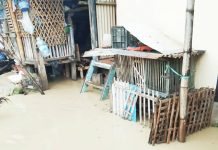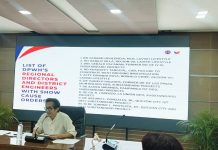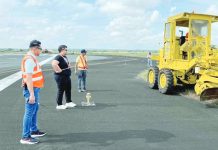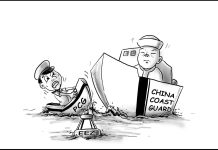
FLOOD control must also face the climate we live in now. Land is sinking, rains are sudden, tides run higher. Concrete alone will not save us. We need mangrove belts, watershed repair, and relocation that keeps jobs and schools within reach. Families will not move if safety means losing income and tearing children from familiar routines. Honest planning means laying out the trade-offs—transport, livelihoods, new school assignments—so people can help make the plan work.
Some say accountability always turns political—hearings as theater, blame tossed like confetti. Then the rain comes, and nothing changes. But another path is possible: a truth-seeking body with civil society, engineers, teachers, budget experts, and local leaders at the table. Give it real power, a timetable, and a public dashboard that names who fixes what by when. Accountability is not a show; it is repair we can measure.
Citizens are already moving. Students draft letters with specific requests and timelines. Faith leaders ask people to wear white as a sign of hope, not partisanship. Parents list drains that need clearing before storms. Alumni fund scholarships for engineering students who pledge public service. Small, steady acts raise the bar. A contractor who knows a PTA will arrive with a tape measure thinks twice before cutting corners. A city hall that receives well-written requests from high schoolers is more likely to post data. Culture shifts when honesty becomes routine and visible.
I remember a Grade 7 boy who found a ₱100 bill on the wet floor during a flood. He could have kept it. Instead, he turned it in and asked for a note to be posted. A week later, the owner returned, relieved. Just a ₱100 bill—but the choice was the same as in billion-peso projects: keep what is not yours, or return it. Our nation sits on that fork. Enough small right choices can change the road itself.
The task ahead is simple, if not easy: open the books, fix the rules, and plan for the water that will come. Train citizens who can read a ledger, visit a site, and ask fair questions. Teach children courage in small acts so they carry it into larger ones. Celebrate the quiet heroism of officials who follow procedure and finish work that holds. Reward firms that build well, on time, and to spec. Protect the first truth-teller. We do not need fireworks. We need follow-through.
Stand for accountability together, and we turn shortcuts into honesty, silence into courage, and work that holds when the rains arrive.
***
Doc H fondly describes himself as a ”student of and for life” who, like many others, aspires to a life-giving and why-driven world grounded in social justice and the pursuit of happiness. His views do not necessarily reflect those of the institutions he is employed or connected with./PN







